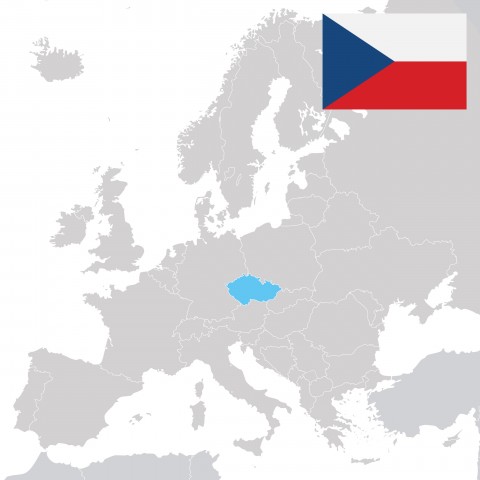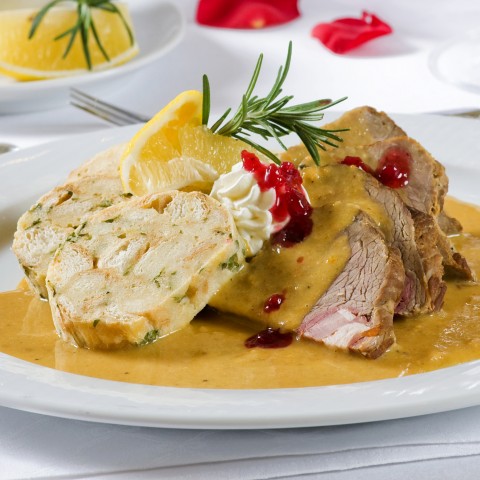
Hello there, friend! How are you today? How has your day been? How long have you been studying Czech? Do you speak other languages? Do you speak English?
You can probably tell that this article is all about the most common Czech questions and answers. I’m going to teach you some basic questions in Czech that may come up in pretty much any conversation, and how to answer them.
Why is this important? Well, learning these common phrases and questions will create a great base for your vocabulary and make any interaction in Czech a lot easier for you.
There’s more to it, of course. Asking the right question is an awesome way to start a conversation, learn new things, get where you want to be (geographically and spiritually), and learn Czech in a fun and interesting way.
So how do you say questions in Czech? What question words in Czech are the most used?
Let’s get into this.
 Table of Contents
Table of Contents
- What is your name?
- Do you speak Czech/English?
- Where are you from? + Where do you live?
- How long have you been studying Czech?
- Have you been to the Czech Republic?
- How are you?
- Do you like Czech food?
- What are you doing?
- What’s wrong?
- How much is it?
- How CzechClass101.com Helps You Learn Czech in a Fun Way
1. What is your name?

As Czech uses formal and informal speech, there are two ways to ask Czech questions, depending on the situation. Aside from that, it’s easy-peasy.
Questions:
- Jak se jmenuješ? (“How are you named?” = “What is your name?”)
People your age; informal speech.
- Jak se jmenujete? (“How are you named?” = “What is your name?”)
People older than you; formal speech (vykání).
Occasionally, you might hear this question as well:
- A ty jsi…? (“And you are…?”)
Informal speech.
- A vy jste…? (“And you are…?”)
Formal speech.
Answers:
- Já jsem Petra. (“I am Petra.”)
- Jmenuju se Petra. (“My name is Petra.”)
Both versions are interchangeable.
- ➢ If you want to introduce yourself like a native, check out this article on introducing yourself in the Czech Republic, and make sure you work on your vocabulary too with these 10 lines you need to introduce yourself in Czech.

Hi, my name is Petra!
2. Do you speak Czech/English?
Again, formal and informal speech differ for this question in Czech.
Questions:
- Mluvíš česky/anglicky? (“Do you speak Czech/English?”)
Informal speech.
- Mluvíte česky/anglicky? (“Do you speak Czech/English?”)
Formal speech.
- Umíš česky/anglicky? (“Can you [speak] Czech/English?”)
Informal speech.
- Umíte česky/anglicky? (“Can you [speak] Czech/English?”)
Formal speech.
Answers:
- Mluvím česky. (“I speak Czech.”)
- Mluvím anglicky. (“I speak English.”)
- Nemluvím česky. (“I don’t speak Czech.”)
- Nemluvím anglicky. (“I don’t speak English.”)
- Ano, trochu. (“Yes, a little.”)
- Ano, velmi dobře. (“Yes, very well.”)
- Ano, ale ne moc dobře. (“Yes, but not very well.”)
- Ano, docela dobře. (“Yes, quite well.”)
- Bohužel ne. (“Sorry, I don’t.”)
3. Where are you from? + Where do you live?

That’s the place I call home. Where are you from?
Questions:
- Odkud jsi? (“Where are you from?”)
Informal speech.
- Odkud jste? (“Where are you from?”)
Formal speech.
- Kde bydlíš? (“Where do you live?”)
Informal speech.
- Kde bydlíte? (“Where do you live?”)
Formal speech.
Answers:
- Jsem z České republiky. (“I am from the Czech Republic.”)
- Jsem z Prahy. (“I am from Prague.”)
- Bydlím v USA. (“I live in the U.S.”)
- Žiju v Praze. (“I live in Prague.”)
Dive deeper and read this lesson to get a grip on Czech phrases and questions related to this topic.
Of course, not everyone lives in the U.S. or the Czech Republic. Find your country and learn how to pronounce it in Czech on Wikipedia or our website!
Getting ready for a convo about geography? This article is a must-read for ya!
4. How long have you been studying Czech?

This is the Czech question you should definitely expect to hear if you’ve gotten this far in the conversation!
Questions:
- Jak dlouho se učíš česky? (“How long have you been studying Czech?”)
Informal speech.
- Jak dlouho se učíte česky? (“How long have you been studying Czech?”)
Formal speech.
- Učíš se česky už dlouho? (“Have you been studying Czech for a long time?”)
Informal speech.
- Učíte se česky už dlouho? (“Have you been studying Czech for a long time?”)
Formal speech.
Answers:
- Učím se česky rok. (“I have been studying Czech for a year.”)
- Učím se česky od minulého roku. (“I have been studying Czech since last year.”)
- Ano, učím se česky už dlouho. (“Yes, I have been studying Czech for a long time.”)
- Ne, neučím se česky dlouho. (“No, I haven’t been studying Czech for a long time.”)
5. Have you been to the Czech Republic?
This Czech question may come up during the conversation, especially if you say you’ve been learning the language for a while.
Questions:
- Byl/byla jsi někdy v České republice? (“Have you ever been to the Czech Republic?”)
Informal speech; [masculine/feminine].
- Byl/byla jste někdy v České republice? (“Have you ever been to the Czech Republic?”)
Formal speech; masculine/feminine.
- Jedeš do České republiky? (“Are you going to the Czech Republic?”)
Informal speech.
- Jedete do České republiky? (“Are you going to the Czech Republic?”)
Formal speech.
Answers:
- Zatím ne. (“Not yet.”)
- Rád/ráda bych se tam brzy podíval/podívala. (“I would like to visit soon.” – masculine/feminine)
- Ano, moc se mi tam líbilo. (“Yes, I liked it very much.”)
- Ano, ale vůbec se mi tam nelíbilo. (“Yes, but I didn’t like it at all.”)
6. How are you?

How have you been?
If you’ve made a new Czech friend, you may want to ask how they’re doing next time you see each other. Here are the most common ways to ask and answer this question in Czech.
Questions:
Informal speech:
- Jak se máš? (“How are you?”)
- Jak se ti vede? (“How are you doing?”)
- Jak se vede? (“How is it going?”)
- Jak se ti daří? (“How are you doing?”)
- Máš se dobře? (“Are you doing well?”)
- Co je nového? (“What’s new?”)
Formal speech:
- Jak se máte? (“How are you?”)
- Jak se vám vede? (“How are you doing?”)
- Jak se vám daří? (“How are you doing?”)
- Máte se dobře? (“Are you doing well?”)
Answers:
- Mám se dobře! (“I’m good!”)
- A vy/ty? (“And you?” – formal/informal)
- Daří se mi dobře, děkuji. (“I’m doing well.”)
- A tobě/vám? (“And you?” – formal/informal)
- Mám hodně práce. (“I am very busy.”)
- Nic se nezměnilo. (“Nothing has changed.”)
- Mám spoustu novinek! (“I have a lot of news!”)
- ➢ Keep in mind that it’s not common to use “How are you?” as a part of just any greeting, such as at the store or in a restaurant while placing an order. The waiters and sales assistants or cashiers would probably be genuinely surprised if you asked (not in a bad way, though).
7. Do you like Czech food?

Svíčková omáčka (beef with creamy sauce and dumplings) is one of the most popular Czech meals.
Questions:
- Máš rád/ráda české jídlo? (“Do you like Czech food?”)
Masculine/Feminine; informal speech.
- Máte rád/ráda české jídlo? (“Do you like Czech food?”)
Masculine/Feminine; formal speech.
- Chutná ti české jídlo? (“Do you like the taste of the Czech food?”)
Informal speech.
- Chutná vám české jídlo? (“Do you like the taste of the Czech food?”)
Formal speech.
- Jaké je tvoje nejoblíbenější české jídlo? (“What’s your favorite Czech food?”)
Informal speech.
- Jaké je vaše nejoblíbenější české jídlo? (“What’s your favorite Czech food?”)
Answers:
- Ano, je velmi dobré. (“Yes, it’s very good.”)
- Ano, chutná skvěle. (“Yes, it tastes great.”)
- Ne, nechutná mi. (“No, I don’t like it.”)
- Ne, nemám. (“No, I don’t.”)
- Nejvíc mi chutná řízek. (“I like schnitzel the most.”)
- Česká kuchyně mi vůbec nechutná. (“I don’t like Czech cuisine at all.”)
- Miluju české jídlo! (“I love Czech food!”)
Have you been invited to lunch or dinner? Czech out this article and make sure you know how to ask for the food you want to eat!
8. What are you doing?

“What are you doing on Wednesday?”
Questions:
Informal speech:
- Co děláš ve středu? (“What are you doing on Wednesday?”)
- Co děláš? (“What are you doing?”)
- Proč to děláš? (“Why are you doing this?”)
- Co právě teď děláš? (“What are you doing right now?”)
- Děláš něco? (“Are you doing anything?”)
- Co budeš dělat? (“What are you going to do about it?”)
Formal speech:
- Co děláte ve středu? (“What are you doing on Wednesday?”)
- Co děláte? (“What are you doing?”)
- Proč to děláte? (“Why are you doing this?”)
- Co právě teď děláte? (“What are you doing right now?”)
- Děláte něco? (“Are you doing anything?”)
- Co budete dělat? (“What are you going to do about it?”)
Answers:
- Na středu mám plány. (“I have plans for Wednesday.”)
- Ve středu mám volno. (“I’m free on Wednesday.”)
- Nedělám nic. (“I’m not doing anything.”)
- Teď něco dělám. (“I’m busy right now.”)
- Nevím, co mám dělat. (“I don’t know what to do.”)
- Nevím, co s tím udělám. (“I don’t know what I’ll do about it.”)
9. What’s wrong?
Not all days are sunny, and you may want to express your concern for someone if they seem down. Here’s how to ask what happened in Czech.
Questions:
- Co se stalo? (“What happened?”)
- Stalo se něco? (“Has anything happened?”)
- Co se děje? (“What is going on?”)
- Jsi v pořádku? (“Are you okay?”)
Informal speech.
- Jste v pořádku? (“Are you okay?”)
Formal speech.
- Potřebuješ pomoc? (“Do you need help?”)
Informal speech.
- Potřebujete pomoc? (“Do you need help?”)
Formal speech.
Answers:
- Nic se nestalo. (“Nothing happened.”)
- Všechno je v pořádku. (“Everything is alright.”)
- Něco se stalo. (“Something happened.”)
- Potřebuju pomoc. (“I need help.”)
- Nepotřebuju pomoc. (“I don’t need help.”)
- Pomozte mi, prosím. (“Help me, please.”)
- Pomůžu ti. (“I’ll help you.”)
Informal speech.
- Pomůžu vám. (“I’ll help you.”)
Formal speech.
10. How much is it?

Which one is on sale?
When you go shopping and there’s no price tag, you’re going to have to ask someone about the price (unless you’re really, really rich or Buddhist).
Questions:
- Kolik to stojí? (“How much is it?”)
- Kolik tohle stojí? (“How much is this?”)
- Kolik stojí tamto? (“How much is that?”)
- Je to ve slevě? (“Is it on sale?”)
- Je to drahé? (“Is it expensive?”)
- Je to levné? (“Is it cheap?”)
Answers:
- Je to moc drahé. (“It’s too expensive.”)
- Je to levné. (“It’s cheap.”)
- Tohle je levnější. (“This is cheaper.”)
- Stojí to 500 korun. (“It’s 500 crowns.”)
- Je to ve slevě. (“It’s on sale.”)
- Není to ve slevě. (“It’s not on sale.”)
We can’t tell you how to handle money, but we can teach you to talk about it in Czech. Find related vocabulary and phrases on CzechClass101.com.
How CzechClass101.com Helps You Learn Czech in a Fun Way
CzechClass101.com will make learning Czech easy, exciting, and fun. With us, it’s not about endless memorizing or thick textbooks. Learn Czech with us and make progress faster than you can imagine!
What can you find here?
- English-to-Czech translation and pronunciation tips/tricks
- Over 630 audio and video lessons
- Vocabulary learning tools
- Spaced repetition flashcards
- Detailed PDF lesson notes
Sign up now—it’s free!
One last thing: Let us know in the comments if this article helped you. Oh, and what’s your secret tip that helped you learn how to ask questions in Czech? Is there anything you want to know about other common questions in Czech? We’ll do our best to help!










